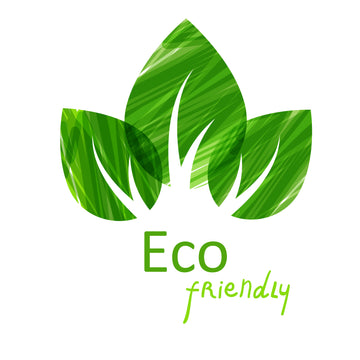News
The Rise of Eco-Friendly and Organic Clothing: Benefits of Embracing Eco Apparel
by Moe Soltani on May 11, 2023

Introduction:
In recent years, there has been a growing global movement towards sustainable and eco-friendly practices, and the clothing industry is no exception. As consumers become more conscious of the environmental impact of their choices, the demand for eco-friendly and organic clothing has surged. This shift towards sustainable fashion is not just a passing trend but a vital step towards creating a greener and more ethical future. In this blog post, we will explore the benefits of embracing eco apparel and how the eco-friendly clothing industry is making a positive impact on our planet.
Reduced Environmental Footprint:
Conventional clothing production processes involve heavy use of chemicals, water, and energy, which contribute significantly to environmental degradation. However, eco-friendly clothing brands prioritize sustainable practices, including the use of organic fibers, natural dyes, and low-impact manufacturing methods. By choosing eco apparel, we can reduce water pollution, minimize carbon emissions, and conserve precious resources like water and energy. These efforts help mitigate the fashion industry's detrimental effects on our environment.
Healthier Materials and Manufacturing:
Eco-friendly clothing is made from organic and natural materials, such as organic cotton, hemp, bamboo, and recycled fibers. These materials are free from harmful pesticides, insecticides, and synthetic additives that can have adverse effects on our health. Additionally, the manufacturing processes of eco apparel often prioritize fair trade and safe working conditions for garment workers, ensuring a healthier and more ethical industry overall.
Preservation of Biodiversity:
The use of organic fibers in eco-friendly clothing helps protect biodiversity and wildlife. Conventional cotton production, for example, relies heavily on pesticides that harm beneficial insects and contaminate ecosystems. On the other hand, organic cotton farming promotes biodiversity, as it avoids the use of harmful chemicals and encourages natural pest control methods. By supporting eco apparel, we contribute to the preservation of vital ecosystems and promote a more balanced and sustainable planet.
Ethical and Transparent Supply Chains:
Eco-friendly clothing brands often prioritize transparency in their supply chains, ensuring that garments are produced under fair and ethical conditions. They work closely with farmers, artisans, and manufacturers to maintain higher labor standards, fair wages, and safe working environments. By choosing eco apparel, we support responsible business practices and contribute to the well-being of the workers behind our clothes.
Supporting Local and Artisanal Communities:
Many eco-friendly clothing brands collaborate with local artisans and small-scale producers, revitalizing traditional craftsmanship and supporting local economies. By purchasing their products, we help sustain these communities, preserve cultural heritage, and empower artisans who might otherwise struggle to compete with large-scale fast fashion brands. Supporting the eco apparel industry means supporting the livelihoods of these talented individuals.
Conclusion:
The rise of eco-friendly and organic clothing signifies a much-needed shift towards a more sustainable and ethical fashion industry. By embracing eco apparel, we can significantly reduce our environmental footprint, promote healthier materials and manufacturing processes, preserve biodiversity, support ethical supply chains, and empower local communities. As consumers, we have the power to drive change and make a positive impact on our planet by making conscious choices about the clothes we wear. Let's support the eco-friendly clothing industry and contribute to a greener, fairer, and more sustainable future.
In recent years, there has been a growing global movement towards sustainable and eco-friendly practices, and the clothing industry is no exception. As consumers become more conscious of the environmental impact of their choices, the demand for eco-friendly and organic clothing has surged. This shift towards sustainable fashion is not just a passing trend but a vital step towards creating a greener and more ethical future. In this blog post, we will explore the benefits of embracing eco apparel and how the eco-friendly clothing industry is making a positive impact on our planet.
Reduced Environmental Footprint:
Conventional clothing production processes involve heavy use of chemicals, water, and energy, which contribute significantly to environmental degradation. However, eco-friendly clothing brands prioritize sustainable practices, including the use of organic fibers, natural dyes, and low-impact manufacturing methods. By choosing eco apparel, we can reduce water pollution, minimize carbon emissions, and conserve precious resources like water and energy. These efforts help mitigate the fashion industry's detrimental effects on our environment.
Healthier Materials and Manufacturing:
Eco-friendly clothing is made from organic and natural materials, such as organic cotton, hemp, bamboo, and recycled fibers. These materials are free from harmful pesticides, insecticides, and synthetic additives that can have adverse effects on our health. Additionally, the manufacturing processes of eco apparel often prioritize fair trade and safe working conditions for garment workers, ensuring a healthier and more ethical industry overall.
Preservation of Biodiversity:
The use of organic fibers in eco-friendly clothing helps protect biodiversity and wildlife. Conventional cotton production, for example, relies heavily on pesticides that harm beneficial insects and contaminate ecosystems. On the other hand, organic cotton farming promotes biodiversity, as it avoids the use of harmful chemicals and encourages natural pest control methods. By supporting eco apparel, we contribute to the preservation of vital ecosystems and promote a more balanced and sustainable planet.
Ethical and Transparent Supply Chains:
Eco-friendly clothing brands often prioritize transparency in their supply chains, ensuring that garments are produced under fair and ethical conditions. They work closely with farmers, artisans, and manufacturers to maintain higher labor standards, fair wages, and safe working environments. By choosing eco apparel, we support responsible business practices and contribute to the well-being of the workers behind our clothes.
Supporting Local and Artisanal Communities:
Many eco-friendly clothing brands collaborate with local artisans and small-scale producers, revitalizing traditional craftsmanship and supporting local economies. By purchasing their products, we help sustain these communities, preserve cultural heritage, and empower artisans who might otherwise struggle to compete with large-scale fast fashion brands. Supporting the eco apparel industry means supporting the livelihoods of these talented individuals.
Conclusion:
The rise of eco-friendly and organic clothing signifies a much-needed shift towards a more sustainable and ethical fashion industry. By embracing eco apparel, we can significantly reduce our environmental footprint, promote healthier materials and manufacturing processes, preserve biodiversity, support ethical supply chains, and empower local communities. As consumers, we have the power to drive change and make a positive impact on our planet by making conscious choices about the clothes we wear. Let's support the eco-friendly clothing industry and contribute to a greener, fairer, and more sustainable future.

